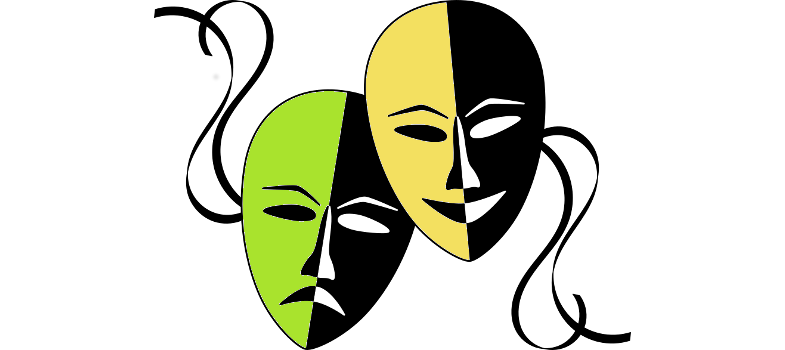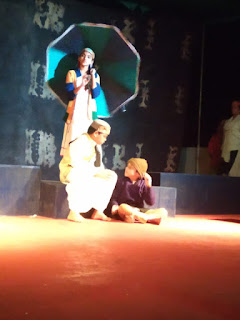The theatre
A unique performing art where stories are enacted by people for people to educate, entertain and communicate.
What is Theatre?
Theatre is defined in Wikipedia as follows:
"Theatre is that branch of the performing arts concerned with the creation of stories or narratives for (or with) an audience using combinations of acting, speech, gesture, music, dance, object manipulation, sound and spectacle — indeed, any one or more elements of the other performing arts. In addition to standard narrative dialogue style, Theatre takes such forms as opera, musicals, ballet, mime, kabuki, classical Indian dance, Chinese opera, mummers' plays, improvisation, story theater, and pantomime."
Theatre is a live performance.
I think this definition is significant as it makes us aware of the vast span of both world theatre and the theatre world.
A visit to the Theatre is a unique experience. It is a live performance and is different from a film or television.
Theatre is an ongoing thought process.
Theatre, the word, comes from the Greek word theatron, which means a place to see. But it is more than that. It is an activity.
I will like to emphasize that it is an ongoing thought process. If you study the Theatre of a particular generation, you can learn about humans who lived in that specific generation.
Theatre is an artistic documentation of time.
It tells us about language, relations, political and social pictures, drapery, behavioral patterns, and many more.
Theatre, in the modern sense of the word, in the last two thousand and five hundred years or so is with us. It is a treasure for students from all disciplines. If someone wants to go back and live in that particular period and find out about life, then, the Theatre will serve as a time machine. Theatre is the vehicle that will take you to an imaginary destination and the time of your choice — past, present, or future.
Evolution of Theatre
Theatre has been liked and practiced all over the world for ages. The age of Theatre is the same as that of humankind. When one person or few people together narrated a story with action to other person or people, maybe of hunting or of taking a bath in a river, theatre elements came to life. They must have done a thorough preparation to make the narration exciting and realistic. Having a good memory and an understanding of the subject was foremost.
Reproducing an event of hunting or a raining or seeing a rainbow may have required some property too. Perhaps a light source was used, or the background sounds of animals or birds or the water flow may have made the narration more real. They might have used a special place to sit or stand so that everybody had a better view.
Journey of Theatre
The Rules of Theatre
One should not take the Theatre casually.

